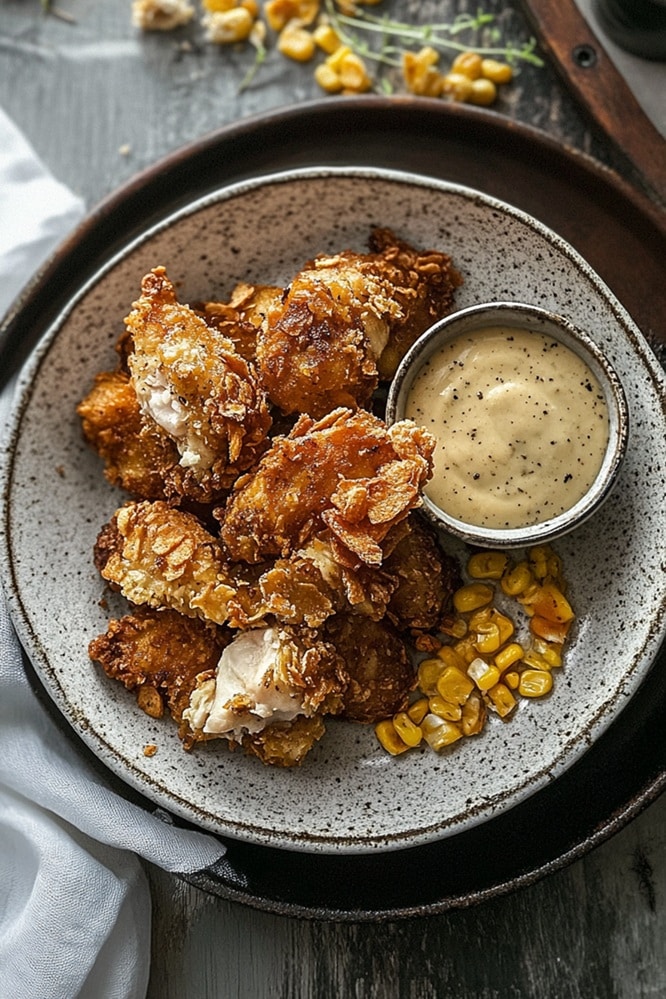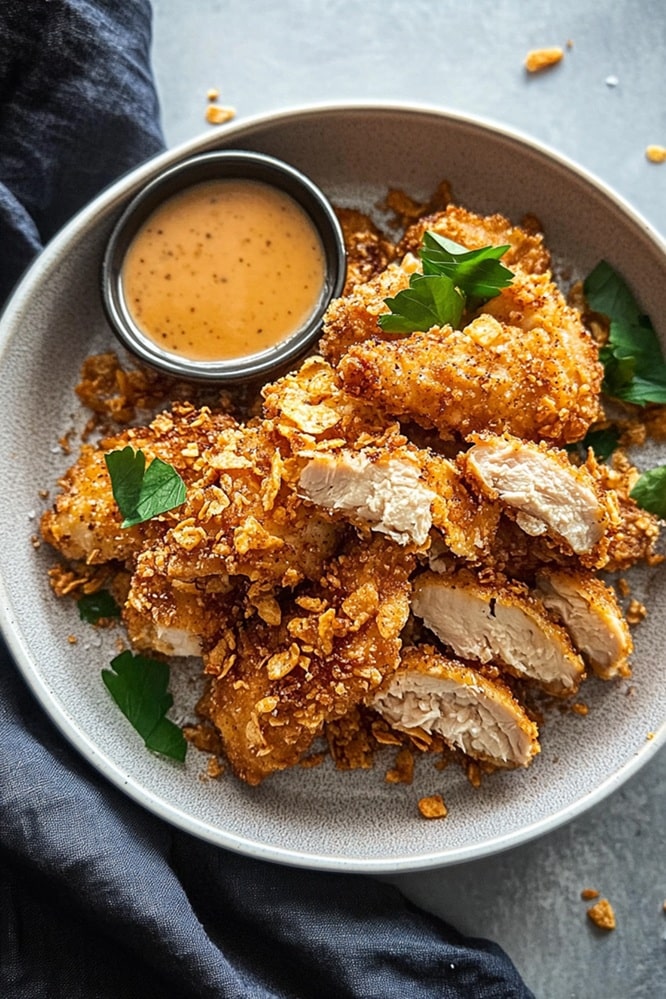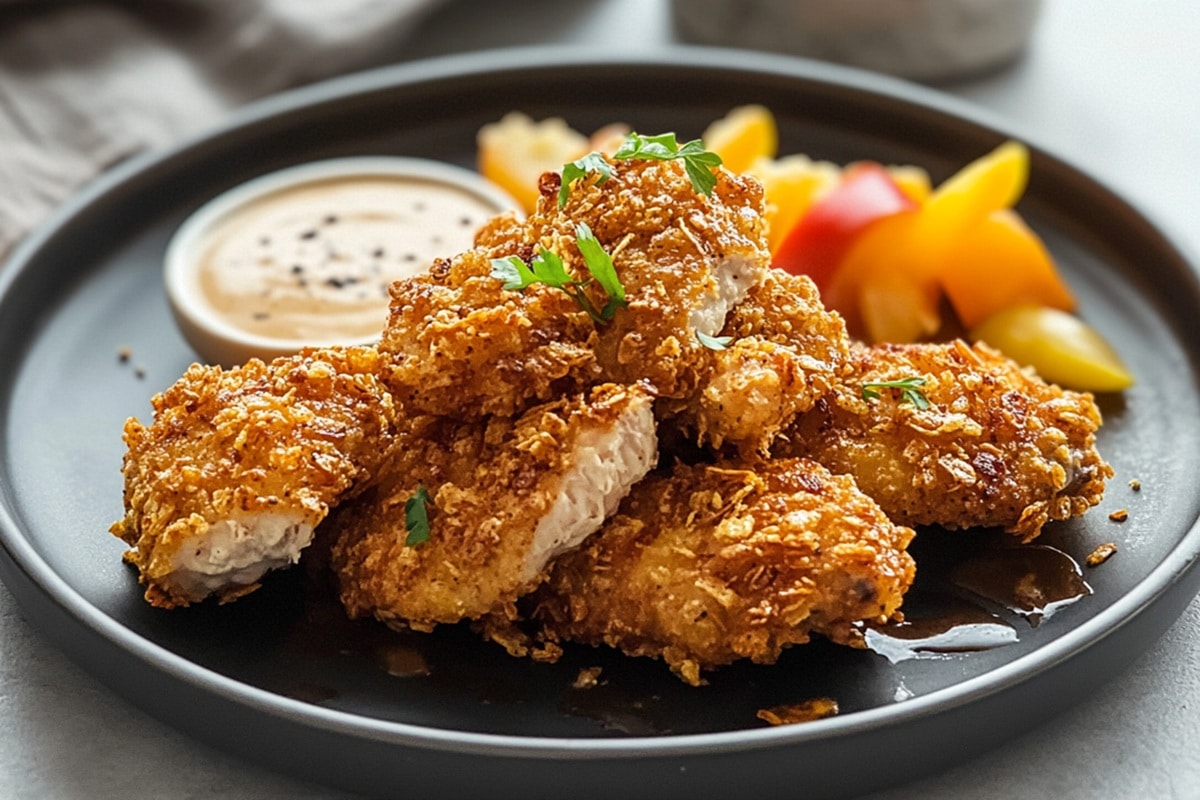I still remember my first air fryer fail like it was yesterday. I was so excited to make a batch of crispy air fryer chicken tenders—I had my seasoned breading ready, my air fryer preheated (or so I thought), and I was expecting a crunchy, golden brown crust.
But when I took the first bite? Soggy. Disappointing. Not at all what I had imagined.
Turns out, getting crispy chicken in the air fryer isn’t just about throwing it in and hoping for the best. The air fryer isn’t magic—it’s all about technique.
I had made several mistakes that day, but after testing different methods (and a lot of trial and error), I finally figured out how to get air fryer chicken perfectly crispy every single time.
If you’ve ever wondered, “Why is my air fryer chicken soggy?” or “Why doesn’t my air fryer give me crispy results?”, you’re in the right place! I’ll walk you through the biggest mistakes and easy fixes, so your next batch comes out perfectly golden brown.
By the way, did you know that not all oils work well for air frying? Some can actually make your food soggy instead of crispy! For more insights on improving your air fryer results, check out these helpful air fryer cooking tips.
And if you’re still new to air frying the chicken, it might be helpful to read my detailed article: Cornflake Chicken Air Fryer – Step by Step Guide.
What you will find in this article:
Why Does Air Fryer Chicken Sometimes Turn Out Soggy?
Air fryers use rapid hot air circulation to create a crispy texture—but that alone isn’t enough. Unlike deep frying, where oil submerges and crisps the food evenly, air frying requires the right technique for the best results.
Before troubleshooting, let’s break down the biggest reasons why your air fryer chicken might not be getting crispy.

Why Didn’t My Chicken Get Crispy in the Air Fryer?.. Top 10 Reasons (And How to Fix It!)
1. You Didn’t Pat the Chicken Dry Before Cooking
- Why it matters: If there’s moisture on the surface, your breading or skin won’t crisp up—it will steam instead!
- How to fix it:
- Always pat the chicken dry with paper towels before seasoning or breading.
- If using marinated chicken, let it rest on a rack for a few minutes to drain excess liquid.
2. You Skipped Preheating the Air Fryer
- Why it matters: Just like an oven, an air fryer needs to be hot before cooking to ensure crispiness from the start.
- How to fix it:
- Preheat your air fryer for at least 3-5 minutes before adding the chicken.
- For best results, set it to 375°F-400°F depending on the recipe.
3. You Used Too Much Oil (Or None at All!)
- Why it matters: Some oil is necessary to help crisp up the coating, but too much can make it greasy instead of crispy.
- How to fix it:
- Lightly spray the chicken with oil before cooking.
- Use high-smoke-point oils like avocado oil or canola oil for the best results.
4. You Overcrowded the Air Fryer Basket
- Why it matters: If the chicken is too close together, air can’t circulate properly, leading to uneven cooking.
- How to fix it:
- Arrange chicken in a single layer without overlapping.
- Cook in batches if needed—yes, it takes longer, but the results are worth it!
5. Your Breading Didn’t Stick Properly
- Why it matters: If your coating falls off, the chicken won’t crisp up evenly.
- How to fix it:
- Press the coating firmly onto the chicken before cooking.
- Let the coated chicken rest for 5-10 minutes before placing it in the air fryer.
6. You Didn’t Flip the Chicken Halfway Through Cooking
- Why it matters: Air fryers don’t always cook evenly, and flipping ensures both sides get crispy.
- How to fix it:
- Flip the chicken midway through cooking for even crispiness.
7. Your Air Fryer Temperature Was Too Low
- Why it matters: Cooking at a low temperature will result in dry chicken before it gets crispy.
- How to fix it:
- Stick to 375°F-400°F for best results.
8. You Used the Wrong Type of Breading
- Why it matters: Some coatings absorb moisture instead of crisping.
- How to fix it:
- Use panko breadcrumbs, crushed cornflakes, or a mix of flour & cornstarch.
9. You Opened the Air Fryer Too Often
- Why it matters: Let the air fryer do its job! Opening it too much disrupts airflow.
- How to fix it:
- Check only once at the halfway mark to flip the chicken.
10. You Didn’t Let the Chicken Rest After Cooking
- Why it matters: Resting redistributes juices and prevents sogginess.
- How to fix it:
- Let it sit for 5 minutes before serving.
Pro Tips for Perfectly Crispy Air Fryer Chicken
- Best temperature: 375°F for breaded chicken, 400°F for skin-on chicken.
- Best coatings: Panko, crushed cornflakes, or a flour-cornstarch mix.
- Best oil sprays: Stick to avocado, canola, or coconut oil.
- Marinate wisely: Skip wet marinades! Use dry rubs for crispier results.
How Long Does Air Fryer Chicken Last?
- Fridge: Store in an airtight container for up to 3 days.
- Freezer: Freeze uncooked, breaded chicken for up to 3 months.
- Reheating Tip: Never microwave! Reheat at 350°F in the air fryer for 3-5 minutes.

FAQs
Why is my air fryer chicken not crispy even with breadcrumbs?
- Breadcrumbs alone aren’t enough—try panko or a mix with Parmesan.
Do I need to spray my air fryer chicken with oil?
- Yes! A light oil mist helps crisp the coating.
Can I stack chicken in the air fryer?
- No, always cook in a single layer for best results.
Should I use foil or parchment paper?
- Avoid foil! Use perforated parchment to allow airflow.
Final Thoughts: My Secret to Crispy Air Fryer Chicken
After countless trials, I’ve mastered crispy air fryer chicken—and you can too! Just preheat, use the right coating, and avoid overcrowding.
Have you had an air fryer fail before? Let me know in the comments, and let’s troubleshoot together!




